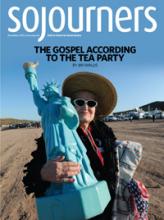Imagine a world in which Wall Street decided that vaccines were a good investment -- not pharmaceutical companies, but doses of medicine themselves. Speculators might start hoarding a mixed portfolio of polio, tetanus, and swine flu vaccines in a refrigerated warehouse. In the short term, desperate parents and governments would bid the price up; fervid Business Week articles would attract new hoarders to the market; investment houses would pocket increasing commissions. Eventually, possibly after one or more epidemics, drug companies would build more factories. The market would crash, normal vaccination would resume, manufacturers would be stuck with unneeded factories, and speculators who got out before the stampede would profit.
Sounds crazy -- but, for the past 10 years, the world has been doing something similar with wheat, corn, beef, and other food commodities (and with fossil fuels, a key input in our current food system). Unlike those fictional vaccine hoarders, most farm commodity speculators don’t warehouse physical grain or meat. Instead they buy "futures," contracts by which farmers promise to deliver at a specific future date.
While speculators controlled less than 25 percent of wheat, rice, soy, and corn futures in 1998, by 2008, it was 70 percent. And -- according to grassroots advocates, an increasing number of economists, and the pope -- speculation was a key part of the 2008 food price crisis, in which, in less than two years, wheat prices more than doubled, more than 100 million people were plunged into poverty, and food riots erupted in countries around the world, before the rapid (but partial) price crash later in 2008.
Read the Full Article
